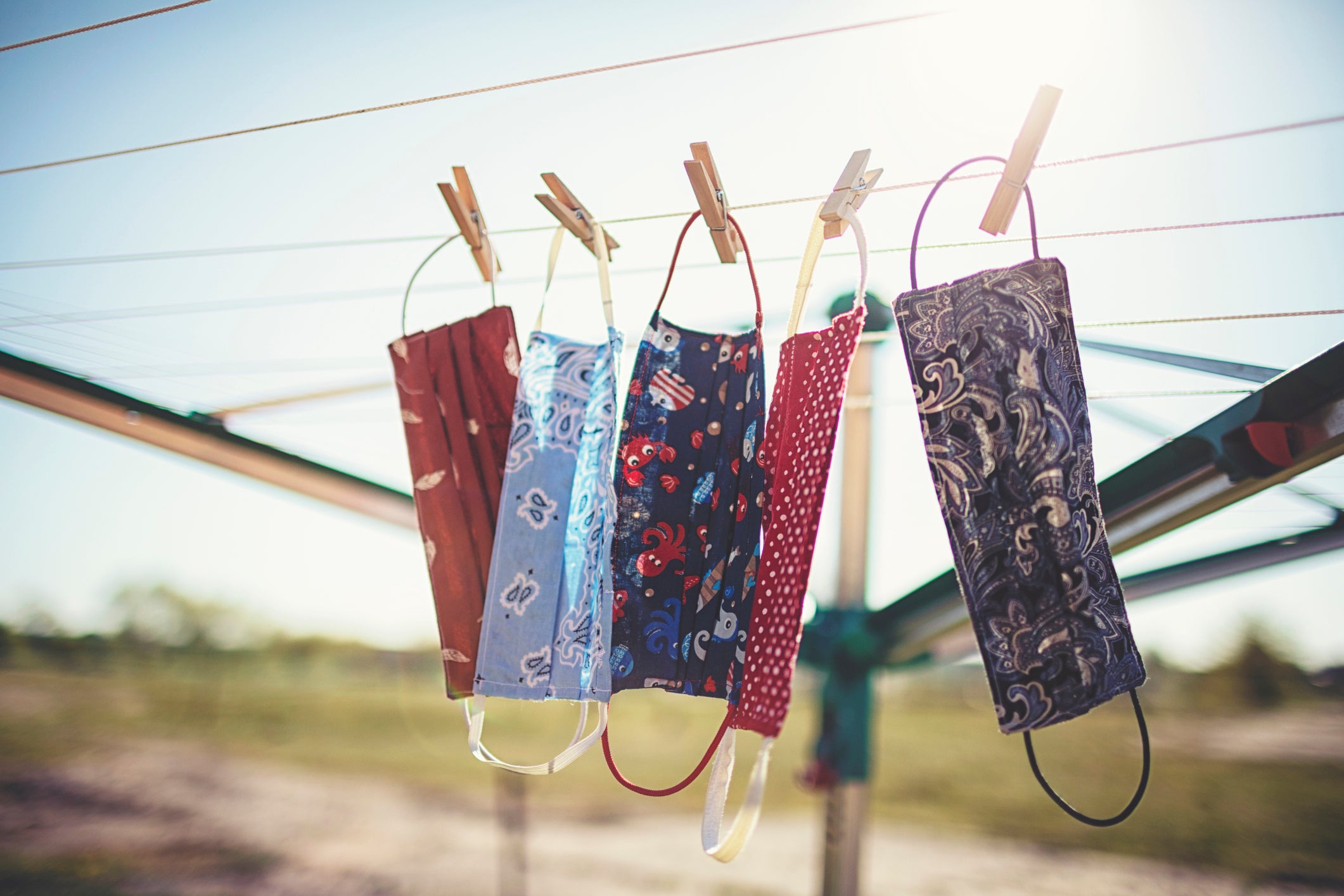These are the most effective types of fabric masks to prevent spread of coronavirus, according to scientists
‘Fabric masks are surprisingly effective at filtering particles which may contain viruses,’ says researcher

Your support helps us to tell the story
From reproductive rights to climate change to Big Tech, The Independent is on the ground when the story is developing. Whether it's investigating the financials of Elon Musk's pro-Trump PAC or producing our latest documentary, 'The A Word', which shines a light on the American women fighting for reproductive rights, we know how important it is to parse out the facts from the messaging.
At such a critical moment in US history, we need reporters on the ground. Your donation allows us to keep sending journalists to speak to both sides of the story.
The Independent is trusted by Americans across the entire political spectrum. And unlike many other quality news outlets, we choose not to lock Americans out of our reporting and analysis with paywalls. We believe quality journalism should be available to everyone, paid for by those who can afford it.
Your support makes all the difference.The majority of fabric masks are effective at preventing the spread of coronavirus, new research indicates.
According to a study conducted by researchers at the University of Cambridge and Northwestern University, most of the fabrics commonly used for non-clinical face masks are effective at filtering ultrafine particles that may contain viruses such as SARS-CoV-2, the virus which causes Covid-19.
For the study, researchers tested everything from t-shirts and socks to jeans and vacuum bags to uncover which type of mask material was most effective at filtering the particles at high speeds, which reflected how they’d work if someone coughed or breathed heavily into the mask.
They also examined the effectiveness of N95 and surgical masks, which are more commonly worn by healthcare professionals.
N95 masks were found to be highly effective, however, a reusable HEPA vacuum bag actually exceeded the N95 performance in some tests.
When looking at homemade masks, researchers found that in general, those that were made from multiple layers of fabric were most effective.
Additionally, those that also incorporated interfacing, which is a technique used to stiffen collars, were even more effective, though they were harder to breathe through.
The researchers also tested how effective fabric masks were when they were damp and after they’d been in the wash.
They found that the fabric masks worked well while damp and also worked just as sufficiently after one laundry cycle. But the researchers pointed to previous studies that have found masks become less effective the more that you wash them.
Lead author Eugenia O'Kelly commented: "Fabric masks have become a new necessity for many of us since the start of the Covid-19 pandemic.
"In the early stages of the pandemic, when N95 masks were in extremely short supply, many sewers and makers started making their own fabric masks, meeting the demands that couldn't be met by supply chains, or to provide a more affordable option.
"As an engineer, I wanted to learn more about them, how well different materials worked under different conditions, and what made for the most effective fit."
O’Kelly went on to talk about the effectiveness of specific materials, explaining that denim was “quite effective” at blocking virus particles but proved difficult to breathe through.
“So it's probably not a good idea to make a mask out of an old pair of jeans,” she added.
"N95 masks are much easier to breathe through than any fabric combinations with similar levels of filtration."
Due to the shortage of N95 masks at the height of the pandemic, fabric masks have become increasingly popular.
However, finding the right one is a matter of striking a balance between what is effective and what is comfortable to breathe through, explains O’Kelly.
"We want the materials to be effective at filtering particles, but we also need to know they don't put users at risk of inhaling fibres or lint, which can be harmful," she said.
"We've shown that in an emergency situation where N95 masks are not available, such as in the early days of this pandemic, fabric masks are surprisingly effective at filtering particles which may contain viruses, even at high speeds."

Join our commenting forum
Join thought-provoking conversations, follow other Independent readers and see their replies
Comments